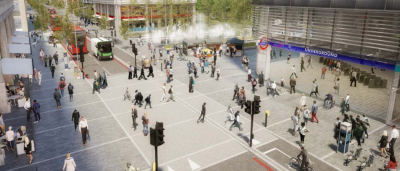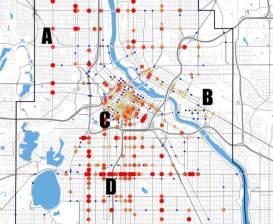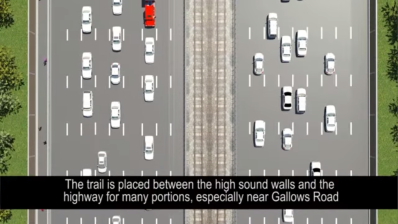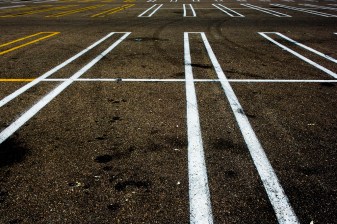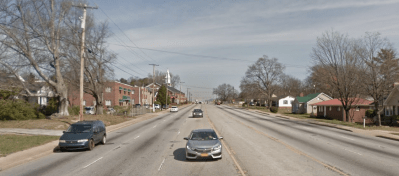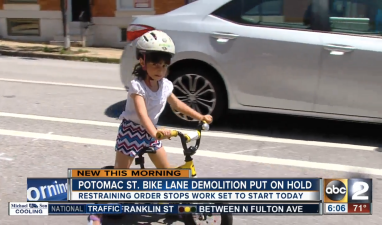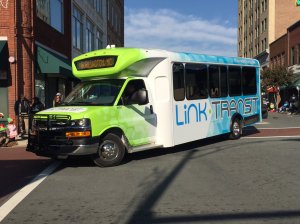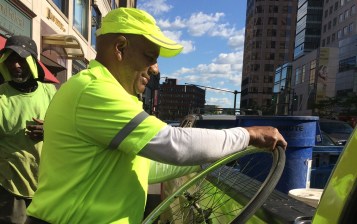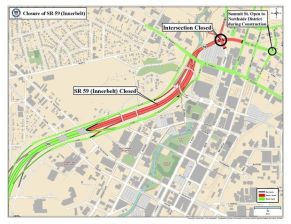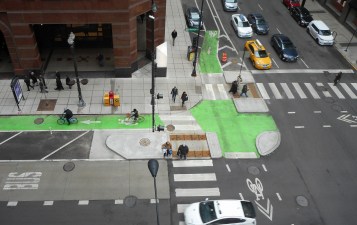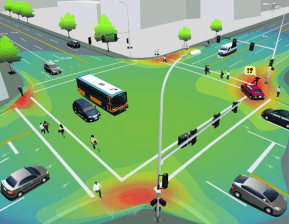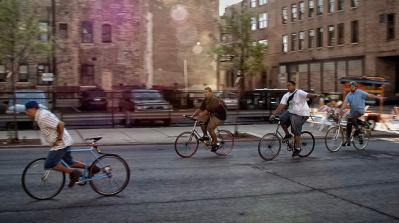Stephen Miller
In spring 2017, Stephen wrote for Streetsblog USA, covering the livable streets movement and transportation policy developments around the nation.
From August 2012 to October 2015, he was a reporter for Streetsblog NYC, covering livable streets and transportation issues in the city and the region. After joining Streetsblog, he covered the tail end of the Bloomberg administration and the launch of Citi Bike. Since then, he covered mayoral elections, the de Blasio administration's ongoing Vision Zero campaign, and New York City's ever-evolving street safety and livable streets movements.
Recent Posts
London's New Transportation Vision: Add a Million People While Cutting Traffic By 3 Million Miles Each Day
| | 10 Comments
London Mayor Sadiq Khan's transport strategy for the next 25 years lays out a vision for how his city, expected to add 1.5 million people by 2041 on top of its current 9 million residents, is planning to keep moving while reducing pollution and improving quality of life. The big idea: Cars are the problem, not the solution.
Why Looking at Crash Stats Alone Doesn’t Tell the Whole Story About Pedestrian Safety
| | No Comments
Some intersections are riskier to cross than others, but looking at the number of pedestrian injuries alone doesn’t tell the whole story. A new study from Minneapolis combines crash data with pedestrian counts to deliver a more nuanced picture of traffic dangers for people on foot. Among the findings: There’s safety in numbers for pedestrians.
Virginia DOT Hopes People Will Enjoy Bicycling Next to a Noisy, Exhaust-Choked Freeway
| | 21 Comments
When a bike path is added to a highway expansion project, it risks being an afterthought, resulting in a low-quality, high-stress route. Like this one, now in the works in Northern Virginia.
Parking Reform Has Big Implications for Sustainable Transit — and for Ride-Hailing, Too
| | 11 Comments
Cities have traditionally eliminated parking requirements to encourage walking, bicycling, and transit. But it can also aid the rise of on-demand car services, two top parking policy experts say.
Media Draw Attention to Deadly Suburban Speedways in North and South Carolina
| | 3 Comments
Newspapers in Greenville and Fayetteville examined hazardous conditions for local pedestrians -- and they did it without using the "J" word.
Judge Issues Restraining Order to Keep Baltimore Mayor From Erasing Protected Bike Lane
| | 29 Comments
Pandering to NIMBYs, Catherine Pugh wants to rip out a protected bike lane that has been in the works for years and cost hundreds of thousands of dollars to design and build.
In Sprawling Areas, Can the Bus Become Anything Other Than a Lifeline for the Poor?
| | 6 Comments
Transit shouldn't just be for marginalized groups. Though it may be a long time before it's seen as an essential public service for everyone in Burlington, some are making exactly that argument.
Here’s a First: Hartford’s Downtown Now Offers Free Roadside Assistance for Cyclists
| | 2 Comments
Bicyclists in downtown Hartford, Connecticut, have a new option if they need repairs on the go -- the area's business improvement district has launched a first-of-its-kind roadside assistance program.
Akron’s Getting Rid of a Downtown Highway. What Should Replace It?
| | 4 Comments
For years, Akron, Ohio, has been planning to dismantle a nearly-empty highway through its downtown. Now that work is underway, the city has an open-door policy to figure out what to do with the land -- and Akronites are coming up with all sorts of ideas.
NACTO Wants to Find Out How Cities Can Design Better Streets, Faster
| | 4 Comments
The National Association of City Transportation Officials, representing more than 50 urban transportation departments across the United States, is known for street design guides that prioritize walking, bicycling, and transit. Now the organization is turning its attention to the nuts-and-bolts of how city bureaucracies can implement these designs in a timely manner, so meaningful change can happen within our lifetimes.
Can Algorithms Design Safer Intersections?
| | 5 Comments
Cities and tech firms are deploying new technology to gauge risks at dangerous intersections. These sensors, cameras, and machine-learning algorithms are promising, especially when it comes to measuring close calls that don't result in crashes - but cities are still figuring out how they can use this information. In the meantime, there's no reason to wait on designing safe streets.
Boston Survey Suggests Approaches to Bikeway Design That Will Appeal More to People of Color
| | 2 Comments
A new survey conducted in Boston's Roxbury neighborhood shows that while people across different racial groups like protected bike lanes, there are variations in preferences that should inform design.
